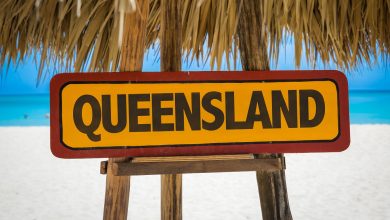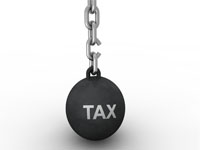
A trillion reasons to book direct
Australian moteliers are sick of forking out huge commissions which can swallow more than half their profits: Do OTAs have too much power?
The global travel market is tipped to grow to more than a trillion Australian dollars this year. That staggering figure – a thousand billion dollars – is provided in the Online Travel Agent market report prepared by The Business Research Company.
It predicts that OTA revenue will grow from $US761.9 billion in 2022 to $US865.5 billion this year and will reach a jaw-dropping $US 1,060.01 billion in 2027.
Our latest AccomNews print issue is available now. Read it HERE
The Asia Pacific was the most profitable region in the online travel agent market in 2022, and many Australian accommodation providers are sick of forking over huge commissions which can swallow more than half the profits of smaller operators.
Online Travel Agents are estimated to control 85 to 90 percent of all accommodation bookings in Australia.
The very public “Book Direct” campaign led by entrepreneur Dick Smith has had some success, particularly at the Budget Motel chain.
But the continued surge in the number of smartphone users is expected to boost the reach and wealth of the online tourism industry further.
Allan Hsiao, who owns a motel at Merimbula on the NSW South Coast, says the commission demanded by the OTAs varies from 10 percent for large multi-national companies with big bargaining power up to 25 percent for small operators who have very little defense.
“The impact could be as much as 55 percent of net profits for small operators,” Mr Hsiao said. “It’s simple maths – if you sell a room for $100 and you make $45 profit from that and you then have to give $25 to the OTAs in commission – that’s more than half your profit gone.
“I came into the accommodation business 10 years ago when Online Travel Agents represented only about 10 percent of bookings – they now represent 80 percent or more of the online booking space.
“It’s a different world and Booking.com and Expedia dominate the market and charge accordingly.”
Some operators claim that the fees being paid to OTAs can be up to 30 percent to get a premium position on an OTA website and that operators are not allowed to compete on price.
The federal government is considering legislation outlawing “price parity” arrangements, as some OTAs prevent hotels from offering cheaper rates on competing platforms or on their own websites.
Book Direct Campaign
Despite Dick Smith leading a very public campaign imploring Australians to call accommodation properties directly and stop sending their money to overseas-based online booking portals, Australian travellers continue to flock to those sites to compare prices from a number of properties in a desired area.
OTAs are attractive to consumers. They are easy to use, offer plenty of choices, and help guests find places to stay that they might otherwise never discover. They claim to offer the best deals and flexible cancellation fees.
But many operators consider that their rapid rise to global domination in the accommodation industry comes at the expense of many small businesses and cheaper travel.

Andrew Leigh, the Federal Assistant Minister for Competition, Charities, Treasury, and Employment, says booking platforms must present a strong case to demand contract terms that keep hotels from offering cheaper prices on their own websites.
Mr Leigh called for submissions to a Treasury consultation on the subject of the OTAs and one of the providers who offered his thoughts was Mark McLoughlan, the Owner/Operator of the highly regarded 26-room Central Deborah Motel in Bendigo.
“Our little brag is a Trip Advisor rating that we think is exceptional,” Mr McLoughlan said, “and we offer our guests little gifts ¬– luxury soaps for instance – if they book directly with us.
“Despite the threat of the OTAs we can always offer the most economical price if guests book direct, but our challenge is to have potential guests know about this rather than take the first option they see on the first placed ad on Google that is usually Booking.com.
“These multinationals have huge advertising and marketing budgets and hire the best IT people in the world to make sure eyeballs are always drawn to their sites. It is tough for independent operators to get in front of their campaigns.”
Mr McLoughlan said he would like to see the Australian public made fully aware of the amount of money going to the OTAs from every transaction they process.
“With credit cards, people are now increasingly made aware of their commissions. When guests use a restaurant they see a 1.8 percent commission shown on their bill,” he said.
“We’re upfront with our guests that we pass on the credit card commission in the room charge.
“How would it be if guests were shown on the bill that the money they spent at a motel included a 15 to 20 percent commission to an overseas-based Online Travel Agency?
“If we had more transparency about the OTA fees – if the public could see that money on their bill, I think it would really lift our direct bookings.”
Mr McLoughlan is also the Vice President of the Bendigo Moteliers’ Association.
In his submission to the treasury for the Consultation Paper on Online Bookings, he said he was being charged a 15 percent minimum commission by Booking.com and Expedia but said properties “must pay more” if they wanted to “stand out” or appear further up on the rankings.
“It is important to note that when the OTAs decide to do a promotion with a 10 percent discount – our commission automatically blows out to a massive 25 percent,” he said.
He told the Treasury that he had experienced the ranking of his property being made lower than what he thought was fair.
“It was as punishment for offering a lower price on our website,” Mr McLoughlan said. “We have in the past had the rate matched or undercut automatically or been moved further down the rankings or otherwise “algorithmically punished”.
“An example of this practice is the so-called ‘best value’ ranking. This ranking sees us ranked in various locations throughout the Online Travel Agency’s listings.
“We could have the lowest price but we are ranked in an unrelated manner to this – maybe midway down the list or even at the bottom. The ‘best value’ ranking is very subjective and the OTAs will not explain how this ranking is calculated. Another example of ‘algorithmic punishment’.
“Consumer rating is far more objective and provides a better indication of true ranking. eg. Trip Advisor that uses ‘Traveller Ranked’ reviews.
“If we block out an OTA (say for busy periods) then the OTAs will state ‘no availability’ on their website. This gives the impression to the consumer that the motel is fully booked. This is not the case. It is simply to gain more direct bookings when special events or major sporting competitions are on. A more accurate wording for OTAs would be ‘no availability on our website’ rather than give the impression that there is no availability on any website, including the motel’s own website.”
Mr McLoughlan said there was “a tendency for OTAs to periodically provide a 10 percent discount to their customers without our approval. We are expected to honour this discount without first having any knowledge of the discount, let alone agreeing to the new price. They tend to have an ‘opt out’ process rather than an ‘opt in’ agreement for such schemes.
“We have had both Expedia and Booking.com create promotions from which we then need to ‘opt-out’ without any notice to us. We have not agreed to run these promotions (eg. 10 percent off for a mobile booking) and often it takes a bit of time to realise what they are doing and make them remove it.
“This is unacceptable and unfair to the motel’s operations. It substantially impacts on our bottom line in the business.”
Mr McLoughlan said if an accommodation provider did not comply with a price parity clause or other similar restriction, they were punished “usually via inadvertent ways, such as lower rankings which in some cases is called ‘greying or ghosting’ – or more recently algorithmic punishments.
“One motelier in the Bendigo Moteliers Group cited an incident a few years back when an OTA threatened to remove his motel from their website altogether. He invited them to go ahead and they desisted.”
Mr McLoughlan said his property offered lower prices directly.
“However, we would say that the vast majority of accommodation providers are too afraid to do this, and therefore don’t have a lower price for direct bookings and may just charge a higher price overall to compensate for the commission charged. We charge a slightly higher rate to consumers booking through OTAs to offset some of the commission payable. However, this is certainly not equivalent to their 15 percent.
“This means that consumers are paying higher prices in general, for the same service or product, which is not a desirable outcome.”
He said OTAs paid millions of dollars in advertising to be ranked on top of every internet search for accommodation for a specific area. They will never show the motel’s direct phone number, nor do they show the commission rate that applies to any booking.
“We speak to guests, and they have no idea of the commissions charged by the OTAs and are often horrified by the deception of Online Travel Agencies. Sometimes they even think they are booking directly with a motel – such is the cleverness and deception of the OTAs. They express dissatisfaction and even anger at the situation when it is explained to them.
“If we are able, by law, to charge the additional 15 percent commission on OTA bookings then that would go a long way to addressing the current imbalance. It would be a fairer system, where the consumer would be the ultimate winner because then it is a transparent process.
“The OTAs have far too much power and control over accommodation providers. They seem to think they can do whatever they want, and accommodation providers feel as if they have no choice as a lot of bookings come from these OTAs because of their marketing buying power and prevalence – due in part to the exorbitant commission taken from Australian businesses.”
Chris Fozard, the Operations Manager of the Budget Motel chain, said he had seen a rise in direct bookings for his 100 members across Australia and New Zealand.
“It’s gone from about eight to eight and a half percent from the property’s own pages before COVID to 10 to 10 and a half percent now,” Mr Fozard said.
“It’s been really fantastic and it’s great news for the industry if this trend continues.
“Our biggest thing is Google at the moment. They are the conquerors of all and they have entered the accommodation space with gusto through Google Maps. It will be interesting to see how that impacts the industry as I’ve heard that in a couple of countries they have already passed Expedia in bookings.
“They don’t charge a commission but I wonder if they will start when they reach a certain threshold.”
Budget Motels ran a major “Book Direct” campaign in 2018 and Mr Fozard helped Dick Smith spread the message to Australia about spending locally and keeping the dollars in Australia after he attended the Budget Motels conference in Adelaide.
Russell Rogers from ResortBrokers said despite “Book Direct” campaigns there was still considerable disinclination from the public to do so.
“The problem accommodation providers still find is that when someone’s travelling they just want to tap on a site that will quickly give them all the motels in a certain area at one time so they can make a quick choice.
“There is still work to be done to overcome that.”
AccomNews has reached out to Expedia and Booking.com for comments
Update:
Expedia Group spokesperson said: “Expedia Group consistently invest and reinvests into ensuring that our world-leading platform is highly intuitive, which enables travellers to find their best travel options quickly and efficiently.
“While other models may charge a listing fee or cost for clicks, Expedia Group only receives compensation once a traveller has completed a booking through the site, without cancellation.
“The compensation covers every aspect of marketing and customer acquisition on our platform, including travellers who find the accommodation on our platform and go on to book directly with the property (transactions where Expedia Group earns nothing).
“Our platform is therefore one of the most cost-effective means for hotels to fill their rooms and offer valuable investment against the return of exposure and business conversion.
“It is important to note that the value of Expedia Group’s platform goes far beyond listings on a distribution channel: lodging providers can utilise our technology tools, data and insights to understand travel trends, which ultimately can help them make better decisions to drive business results. Over the past few years, we have also come down several hundred base points in the compensation we receive from hotel partners.
“We also realise traveller expectations continue to evolve and we remain dedicated to optimising our marketplace standards to ensure we consistently meet and exceed these expectations. For example, the new guest experience score we introduced last year uses billions of traveller inputs created across our platform, including guest reviews, in-stay feedback, and relocations, to build an accurate picture of the experience delivered.”
Grantlee Kieza OAM has won three Queensland Media Awards, two Australian Sports Commission Awards and has been a finalist for the Walkley and News Awards and for the Harry Gordon Award for Australian sports journalist of the year. In 2019 he received the Medal of the Order of Australia for his writing. You can find more of his work in our AccomNews & Resort News print magazines.
He has written 22 acclaimed books, including bestsellers Hudson Fysh, The Kelly Hunters, Lawson, Banks, Macquarie, Banjo, Mrs Kelly, Monash, Sons of the Southern Cross and Bert Hinkler.








Thank you for this article. It appears that others in the accommodation industry may be experiencing similar issues to us.
I am the owner/operator of two small boutique hotels in Byron Bay, Victoria’s at Ewingsdale and Victoria’s At Wategos.
We queried the 10% discount that Expedia applied to our properties, as we were never advised or informed of the promotion. We have not agreed to the discount, so after many attempts to try and resolve the ongoing issue, Expedia suspended our properties, so when a customer visits the Expedia website, both our properties show ‘WE ARE SOLD OUT’, which is not the case. We have now submitted a formal complaint to the ACCC.